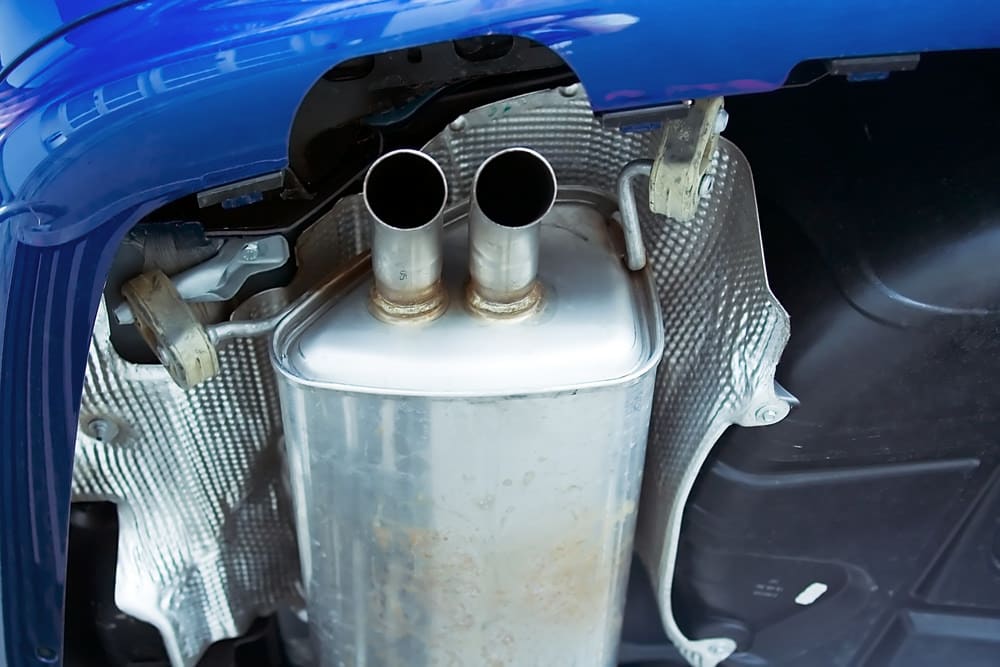

Exhaust systems must be made from metal to provide the required durability and resistance to heating, cooling and exposure to the elements. However, there are many different types of metals (and grades of individual metals). There are also differences between stock exhaust systems and aftermarket systems.
Stock exhaust
If you’re still using the stock exhaust system that came on your car, chances are good that it’s made from 400-series steel (generally 409, but other grades are used as well). This is a type of carbon steel that offers good all around performance. It’s relatively light, relatively durable, and relatively long-lived. Note that use of “relatively.” Like all other stock vehicle components, exhaust systems are designed with compromises in an attempt to meet as many possible needs as possible.
Aftermarket exhaust
If you’ve had to replace your stock exhaust due to damage or wear, you may have an aftermarket system in place now. It may use 400-series steel, or it may use something else depending on the type of system in question.
Aluminized steel: Aluminized steel is an attempt to make the metal more corrosion resistant. The aluminized coating oxidizes to protect the underlying metal (like galvanized metal). However, any abrasion that removes this coating compromises the underlying steel and can allow rust to set in.
Stainless steel: Several grades of stainless steel are used on aftermarket exhaust systems, particularly the muffler and tips. Stainless steel offers some protection against weathering and damage, but it will also eventually rust.
Cast iron: Cast iron is used mostly in stock exhaust systems, and is used to manufacture the exhaust manifold that connects the engine to the piping. Cast iron is very strong, but very heavy. It will also eventually rust and can become brittle over time.
Other metals: There are many other metals used in automotive exhaust systems, but they’re generally used as alloy materials with steer or iron in order to promote better corrosion resistance. These include chromium, nickel, manganese, copper and titanium.
A wide range of metals can be used in your exhaust, depending on the type of system you have. However, they are all subject to damage and wear, and will need regular inspections and eventual replacement.



